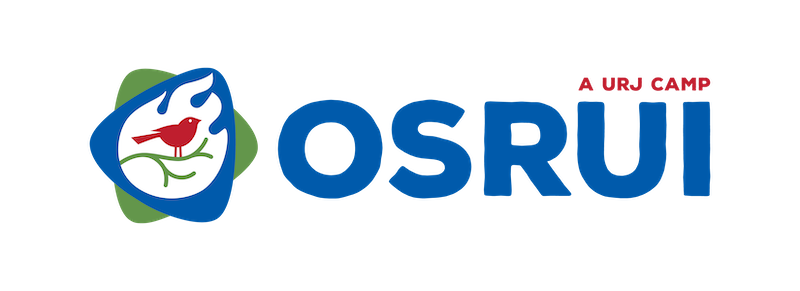By Rabbi Marci N. Bellows, rabbi of Temple B’nai Torah in Wantagh, NY, and an OSRUI Alum.
During my first summer at URJ’s Olin-Sang Ruby Union Institute (OSRUI) summer camp, I was a mere eleven years old. As the oldest of four children, I had a very clear role and identity in my family, and my social circles in school were also fixed. Somehow, even at that young age, I was aware that my three precious weeks at OSRUI were going to afford me something special—a chance to rethink who I was and how I presented myself.
After we brought all of our bags to our cabin (we stayed in a tiny one that was affectionately called the “doghouse,” as it wasn’t much bigger than one), we sat in a circle on the grass outside. I vividly remember our counselors asking us to share our full names, where we were from, and what we wanted to be called while we were there. “What I want to be called?” I thought to myself. With a name like Marci, nicknames are not readily nor obviously available. Thus, I had never really been called anything but, “Marci.” Suddenly, with a simple question, I realized that I had a chance to reinvent myself by asking to be called something else.
I decided on “Maci.” With this monumental decision, my pulse raced with excitement. Who was this Maci person going to be? Though I didn’t yet know, I realized that my new camp friends would get to see a side of me that had not been free to express herself before. They might even get to know me better than anyone had before. Consequently, or coincidentally, I had a life-changing summer, which led, in many ways, to my becoming a rabbi.
How many of us change our names or nicknames as we get older, or as we change contexts? Someone called “Ricky” in one setting might prefer “Richard” in another. A girl called “Patty” as a child might choose to be “Patricia” as she gets older. And, just as “Baby,” in the movie, Dirty Dancing, thinks nothing of her name throughout most of her adolescence, she reveals her more mature, given name, Frances, to her first love, Johnny. The names we are given, the names we earn, and the names we give ourselves, represent so much more than just sounds, phonemes, or vocalizations. In many ways, they are us.
Could it be that God made a similar identity shift when a new chapter of God’s story began?
In Exodus 6:2‒3 we read, “God spoke to Moses and said to him, ‘I am the Eternal. I appeared to Abraham, Isaac, and Jacob as El Shaddai, but I did not make Myself known to them by my name YHVH.” Every time I study these verses, they make my heart flutter a bit. I imagine that God has been searching for a partner here among us for a very long time. Characters like Abraham and Sarah, Isaac and Rebekah, Jacob and Leah and Rachel were probably satisfactory partners, but maybe not ideal. Developmentally, the Israelite religion was in its infancy, and both sides of the covenant had to learn more about each other. Just as a new parent often feels unsure of his or her authority, maybe God didn’t always feel confident in God’s choices.
But then, Moses entered the story. Moses would come to have a relationship and connection with God like none other. According to Parashat Va-eira, Moses was learning a name of God that had not yet been revealed to earlier generations of the People of Israel. This name of God, YHVH, seemed to be a more intimate way in which to call upon the Divine. Moses would now have a more “direct line” through which to access God. And, likewise, this represented a more intimate relationship between God and the people themselves.
Just as people often change their names as they get older, God may have been maturing as well. God was learning more and more about the Israelites, and was about to perform one of the greatest miracles of our story: the Exodus from Egypt. The Israelites’ imminent freedom would require them to trust Moses as a leader and feel safe relying on God. One way to ensure this was to teach them a new name, one that inspired devotion and closeness.
So, who gives you your name? Do you feel that it helps people feel closer to you? Does it invoke trust or love? What names do you use in various parts of your life? The Israeli poet, Zelda, put it best when she listed all the beautiful and meaningful ways in which we earn our names.
Each person has a name.
We each have a name given by God and given by our father and mother.
We each have a name given by our stature and smile and given by our attire.
We each have a name given by the hills and given by the walls.
We each have a name given by the stars and given by our friends.
We each have a name given by our sins and given by our yearnings.
We each have a name given by our enemies and given by love.
We each have a name given by celebrations and given by our work.
We each have a name given by the seasons and given by our blindness.
We each have a name given by the sea and given by our death.
(Mishkan T’filah, ed., Elyse D. Frishman [New York: CCAR Press, 2007], p. 579)
Reprinted with permission. The original appeared in ReformJudaism.org
